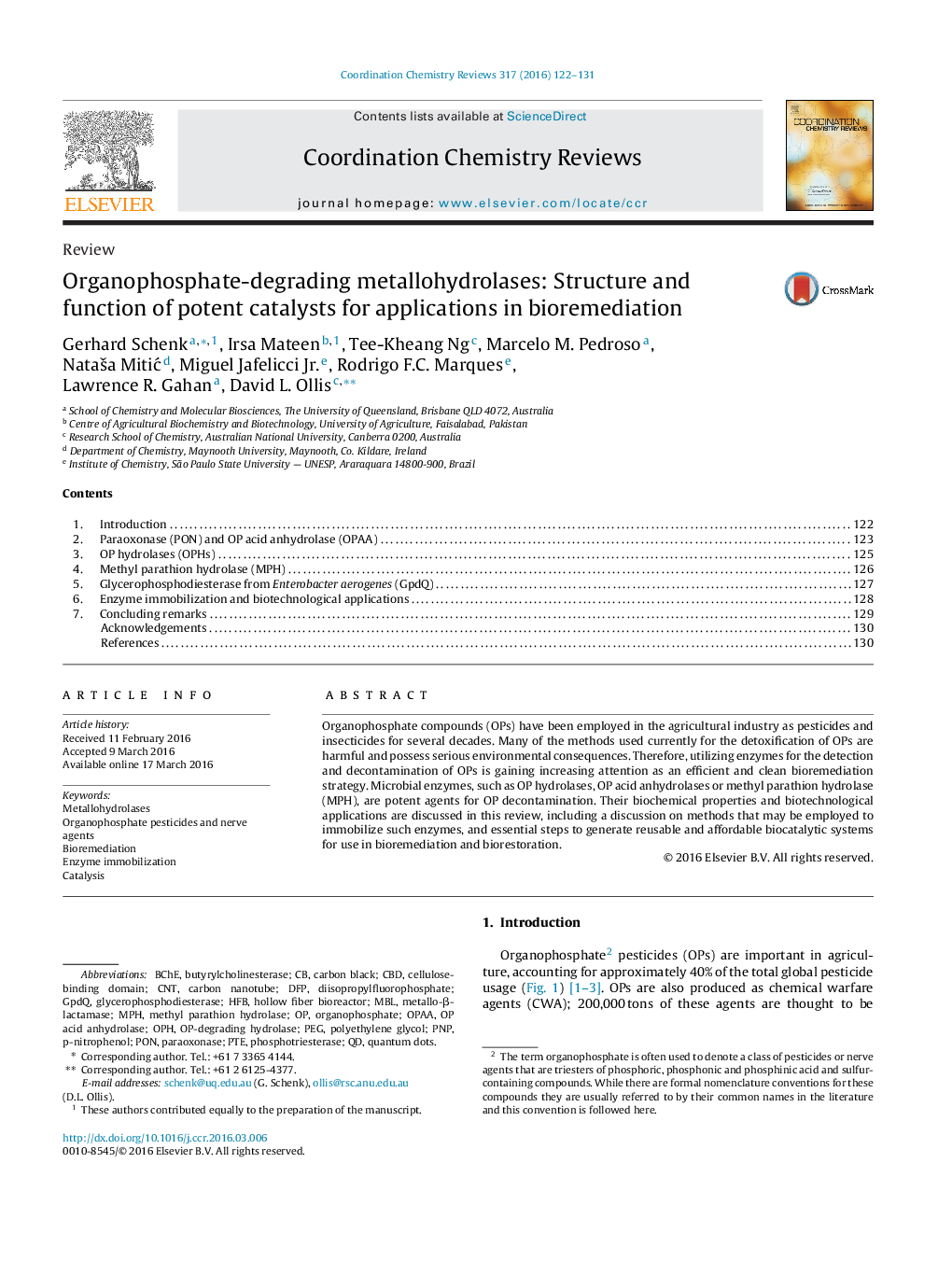| Article ID | Journal | Published Year | Pages | File Type |
|---|---|---|---|---|
| 1299043 | Coordination Chemistry Reviews | 2016 | 10 Pages |
•Organophosphate (OPs) compounds are heavily used pesticides in agriculture.•OPs are highly toxic and present a threat to human health and the environment.•A growing number of metalloenzymes are identified that inactivate OPs.•OP-degrading metalloenzymes have strong promise as bioremedial agents.•Such metalloenzymes can be immobilized for practical applications.
Organophosphate compounds (OPs) have been employed in the agricultural industry as pesticides and insecticides for several decades. Many of the methods used currently for the detoxification of OPs are harmful and possess serious environmental consequences. Therefore, utilizing enzymes for the detection and decontamination of OPs is gaining increasing attention as an efficient and clean bioremediation strategy. Microbial enzymes, such as OP hydrolases, OP acid anhydrolases or methyl parathion hydrolase (MPH), are potent agents for OP decontamination. Their biochemical properties and biotechnological applications are discussed in this review, including a discussion on methods that may be employed to immobilize such enzymes, and essential steps to generate reusable and affordable biocatalytic systems for use in bioremediation and biorestoration.
